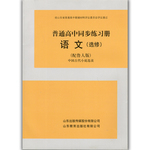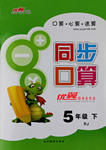题目内容
An enjoyable trip
On October 28th, we began our exciting trip to the world-famous sand island—Fraser Island, which is said to be the world largest sand island and it is one of the world cultural heritages (遗产). We were really amazed by the spectacular view there.
The road to the island is really tough and bumpy. The bus driver, who was also our guide was a very strong man. He was optimistic (乐观的) and helpful. I found he was all smiling on the way though the ride was not very smooth. We stopped for several times because the cars in front of us were blocked by sand. The road was completely sand about 50 centimeters high. We were thrown back and forth like taking a rollercoaster (过山车). All of us couldn’t help laughing when we were shaken from side to side. It took us more than an hour to arrive there. I guess this road is one of the most impressive things.
The beach is so wonderful and terrific! This was my first visit to the seaside. The broad sea made me speechless. We were really thrilled by the amazing view. We couldn’t stop taking so many pictures. The bus ran along the beach with the sea water on one side and bushes on the other side. The view outside the bus was really fantastic! The driver told us there were dingoes (野犬) in the bush. When we were sitting on the bus, we kept on searching the faraway bush for a dingo. Unfortunately, we didn’t see one.
The lake is the next destination we went to. This lake which is ringed by white sand beaches lies peacefully on the hill, which is 18 meters above the sea level. The crystal clear water from the rainfall is sparkling (闪光). Male students jumped into the lake without taking off the clothes. They played with water like small children. Nowhere else in the world can you find such a wonderful fairly land.
The forest is the last place we visited. Those towering rainforests grow on sands. There are many varieties of species. Some trees are so tall and have a history of 500 years. Some gum trees are quite strange because their barks (树皮) fall. The driver told us that this was because they wanted to protect themselves from worms or fires. This forest is home to many animals. We could hear bird singing when we were walking in the shade from the trees.
The tour to Fraser Island makes a deep impression on us. It provides us magnificent views. It is well worth a visit.

71. go 72. amazing 73. helped 74. laughter 75. Thrilled
76. peace 77. on 78. various / different 79. rainforests 80. visiting

 海淀黄冈名师导航系列答案
海淀黄冈名师导航系列答案 普通高中同步练习册系列答案
普通高中同步练习册系列答案 优翼小帮手同步口算系列答案
优翼小帮手同步口算系列答案
This was no ordinary class. The students who came together were all science or engineering professors at Cornell University. They had interrupted their research to accept an invitation to take part in an unusual experiment: “an interesting week of poetry.” This class was part of a study to answer the questions: Why is science difficult for many nonscience students? What can teachers learn about teaching if they take a class that is not in their field?
The students in the poetry class listened to lectures and took notes. They had reading tasks and had to write three short papers. All students noticed one thing – the importance of spoken words. In science and engineering classes, the instructors put tables and drawings on the blackboard. But in this poetry class, the instructors just talked. They didn’t write anything on the board.
The scientists and engineers noticed one similarity between science and poetry. In both subjects, students need to find layers (层次) of meaning . Some layers are simple, clean, and on the surface; other layers are deeper and more difficult. This search for different levels of meaning doesn’t happen much in undergraduate(本科) science classes, but it is important later, in graduate school. And it is always important in humanities(人文科学).
Both the poetry instructors and their students learned something about teaching from this experience. One poetry instructor, for example, now sees the importance of using informative as he teaches. Most of the scientists agreed on several points. First, humanities classes might help science students to see patterns and decide which information is important. Second, the poetry class was fun. One engineer decided, “We need to change the way we teach engineering to make to make it an enjoyable experience for students.”
But perhaps the most important result of the experience was this; All of the professors began to think about how they teach and how they cam teach better.
【小题1】What do we know about this unusual class?
| A.The teachers did lots of writing on the board |
| B.The teacher were invited to attend several lectures. |
| C.The student were professors from a university |
| D.The students were studying science and humanities. |
| A.how to teach the students in the science class |
| B.whether poetry is difficult for science students |
| C.what to be taught in the humanities class |
| D.why many humanities students find science hard. |
| A.important for graduate students in humanities |
| B.difficult for graduate students in humanities |
| C.common for undergraduate students in science |
| D.easy for undergraduate students in science. |
| A.They should change the way they teach |
| B.A poem could be explained in clear definitions. |
| C.A poetry class could be more informative. |
| D.Their teaching was an enjoyable experience. |
Chinese are very generous when it comes to educating their children. Not caring about the money, parents often send their children to the best schools or even abroad to England, the United States and Australia. They also want their children to take extra-course activities where they will either learn a musical instrument or ballet, or other classes which will give them a head in life. The Chinese believe that the more expensive an education is, the better it is. So parents will spend an unreasonable amount of money on education. Even poor couples will buy a computer for their son or daughter.
However, what most parents fail to see is that the best early education they can give their children is usually very cheap.
Parents can see that their children are very skilled in some areas while poor in others. What most parents fail to realize though, is that today’s children lack self-respect and self-confidence.
The problem is that parents are only educating their children on how to take multiple-choice tests and how to study well, but parents are not teaching them the most important skills that they need to be confident, happy and clever.
Parents can achieve this by teaching practical skills like cooking, sewing and doing other housework.
Teaching a child to cook will improve many of the skills that he will need later in life. Cooking demands patience and time. It is an enjoyable but difficult experience. A good cook always tries to improve his cooking, so he will learn to work hard and gradually finish his job successfully. His result, a well-cooked dinner, will give him much satisfaction and lots of self-confidence.
Some old machines, such as a broken radio or TV set that you give your child to play with will make him curious and arouse his interest. He will spend hours looking at them, trying to fix them; your child might become an engineer when he grows up. These activities are not merely teaching a child to read a book, but rather to think, to use his mind. And that is more important.
【小题1】Generally speaking, children’s skills __________.
| A.come from their parents |
| B.have nothing to do with their education |
| C.may be different from child to child |
| D.have something to do with their marks in the exams |
| A.the parents’ ideas of educating their children |
| B.the education system |
| C.children’s skills |
| D.children’s hobbies |
| A. learn how to serve their parents |
| B. learn how to become strong and fat |
| C. benefit from it and prepare themselves for the future |
| D. make their parents believe that they are clever |
| A.Chinese are not very generous on educating their children. |
| B.All Parents know how to teach their children well. |
| C.Teaching a child to cook can improve the skills that he will need in the future. |
| D.Poor parents cannot buy a computer for their children. |